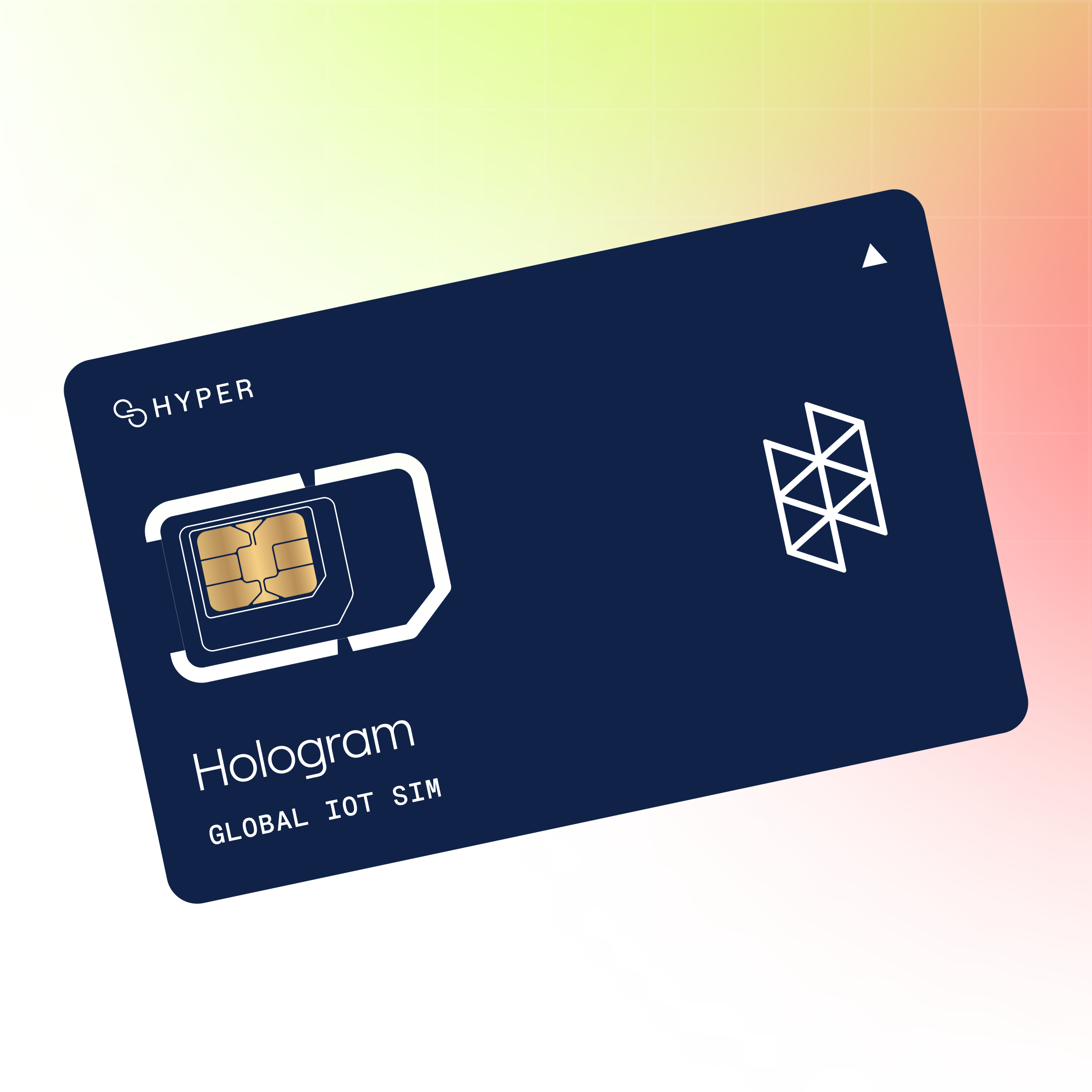Vodafone Iot Sim Card What is an IoT SIM?
Vodafone Iot Sim Card What is an IoT SIM?
Blog Article
Iot Global Sim Card IoT Shattering Connectivity Expectations
The landscape of producing is evolving rapidly, pushed primarily by technological developments. Among these advancements, IoT connectivity options for manufacturing automation stand out as pivotal parts reshaping how industries operate. The Internet of Things (IoT) integrates digital and bodily worlds, creating a network of interconnected gadgets that communicate seamlessly. This interconnectedness permits manufacturers to optimize their processes and enhance productivity.
Real-time information is a cornerstone of modern manufacturing. Through IoT connectivity options, machines and sensors generate information that provide insights into manufacturing processes. This immediate access to information empowers manufacturers to make knowledgeable choices quickly. For instance, if a machine is underperforming, operators can determine the problem and implement corrective actions without delay, finally minimizing downtime and enhancing throughput.
Predictive maintenance is one other important benefit of IoT connectivity options. By repeatedly monitoring equipment performance via quite a few sensors, producers can anticipate failures before they occur. This proactive strategy drastically reduces maintenance prices and improves the lifecycle of equipment. Instead of adhering to a reactive maintenance strategy, organizations can optimize their maintenance schedules based on actual machine circumstances.
Sim Card Per Iot What Is An IoT SIM Card?
IoT know-how additionally facilitates higher supply chain management. With the mixing of sensors all through the availability chain, producers acquire enhanced visibility into inventory levels and materials flows. This improved visibility permits companies to optimize inventory administration, ensuring that they have the mandatory materials available with out overstocking. Such efficiency translates to decreased costs and improved service ranges, that are essential for maintaining a competitive edge.
Automation and robotics are increasingly reliant on IoT connectivity solutions. Smart factories combine automated methods powered by IoT to streamline manufacturing processes. Robotics equipped with IoT capabilities can communicate with each other and adjust their actions based on real-time knowledge from the environment. This degree of synchronization allows the implementation of adaptive manufacturing methods that respond to fluctuations in demand shortly and effectively. Hologram Iot Sim Card.
Iot Sim Card Europe Global IoT SIM Card
Implementing IoT connectivity options requires a strong network infrastructure. Manufacturers must spend money on dependable and safe communication networks capable of handling the immense data generated by interconnected gadgets. 5G technology is rising as an important enabler of IoT connectivity in manufacturing. Its speedy pace and low latency support the real-time applications that are important for data-driven decision-making.
Data analytics plays a vital role in harnessing the total potential of IoT connectivity options. With a wealth of data generated from connected gadgets, producers must employ superior analytics tools to extract actionable insights. Machine studying algorithms can establish patterns and anomalies in knowledge that may not be obvious to human analysts. This data-driven strategy enhances operational efficiency by driving steady enchancment across manufacturing processes.
Cybersecurity is a vital consideration as manufacturers integrate IoT options into their operations. The connectivity that IoT brings increases the floor area for potential cyberattacks. Implementing sturdy security measures to safeguard important manufacturing methods is paramount. This entails ensuring that every one gadgets are secure, information is encrypted, and continuous monitoring for threats is in place.
Worker security is significantly improved by way of IoT connectivity solutions. Wearable gadgets outfitted with sensors can monitor the health and security of staff in real time. These smart wearables can alert personnel to hazardous circumstances, ensuring well timed intervention. Such measures not only shield workers but in addition contribute to total productivity by minimizing the chance of accidents.
Buy Iot Sim Card Ruggedized IoT SIM eSIM
The transition to try this smart manufacturing through IoT connectivity solutions additionally promotes sustainability. By optimizing processes, producers can considerably cut back waste and energy consumption. IoT devices help monitor useful resource utilization, enabling businesses to determine areas the place effectivity may be enhanced. These environmentally pleasant practices not only benefit the planet however also can lead to price financial savings over time.
The impact of IoT connectivity solutions on manufacturing extends beyond the operational realm. They enable enhanced customer engagement by allowing manufacturers to deliver custom-made services. Through IoT-enabled gadgets, producers can collect information about buyer preferences, leading to the creation of tailor-made choices that higher meet market calls for. This level of engagement fosters customer loyalty and strengthens brand reputation.
In conclusion, IoT connectivity solutions for manufacturing automation represent a transformative drive within the trade. By offering real-time insights, predicting tools failures, bettering supply chain administration, and enhancing employee security, these options redefine operational effectivity. As manufacturers continue to integrate IoT technologies, the benefits extend past conventional metrics of productiveness and price. Embracing these innovations sets the groundwork for a more sustainable and responsive manufacturing environment that is geared up to satisfy the challenges of the lengthy run.
Sim Card Iot Devices SIM Card IoT Data Plan

- Enhanced real-time monitoring through IoT sensors allows manufacturers to track machinery performance and operational efficiency.
- Predictive maintenance is facilitated by IoT connectivity, reducing downtime and extending tools lifespan through timely interventions.
- Seamless integration of IoT gadgets throughout manufacturing traces enhances information assortment, leading to improved decision-making processes.
- Wireless technologies such as LPWAN allow cost-effective communication over huge manufacturing services, minimizing set up complexity.
- Cloud-based IoT platforms present scalable options for knowledge analytics and visualization, empowering producers to determine trends and optimize workflows.
- Enhanced asset tracking utilizing IoT gadgets ensures better stock administration and decreased losses because of misplacement or theft.
- Industry-specific IoT protocols, like MQTT and CoAP, ensure efficient and secure data transmission tailor-made to manufacturing wants.
- Advanced cybersecurity measures are crucial in IoT ecosystems to protect delicate operational knowledge from potential threats and breaches.
- Integration of IoT with machine learning algorithms permits for autonomous changes and improvements in production processes primarily based on historic data.
- Collaboration with IoT solution suppliers allows manufacturers to customise connectivity strategies that address their distinctive operational challenges.
What are IoT connectivity solutions for manufacturing automation?
IoT connectivity solutions allow seamless communication between machines, sensors, and units within a producing environment, facilitating knowledge exchange, monitoring, and management to boost operational effectivity and decision-making.
How do IoT connectivity solutions enhance manufacturing processes?
These solutions streamline workflows, cut back downtime, and optimize asset utilization by offering real-time data insights, enabling predictive maintenance, and enhancing supply chain visibility.
Iot Sim Card Ruggedized IoT SIM eSIM
What forms of IoT connectivity technologies are generally used in manufacturing?

Common technologies include Wi-Fi, Zigbee, LoRaWAN, cellular (4G/5G), and Bluetooth. Each expertise provides unique advantages primarily based on vary, knowledge transfer pace, and power consumption suited for completely different manufacturing needs.
How secure are IoT connectivity options for manufacturing?
Robust security measures, including encryption, gadget authentication, and community segmentation, are essential to guard manufacturing environments from cyber threats, making certain data integrity and operational continuity.
Free Iot Sim Card SIM cards stopped working IoT Modules
Can IoT connectivity options be built-in with existing manufacturing systems?
Yes, many IoT solutions are designed for interoperability, permitting integration with legacy methods and equipment. This permits manufacturers to enhance their capabilities with out changing existing infrastructure.
copyright Iot Sim Card SIM Card IoT Data Plan
What are the price implications of implementing IoT connectivity solutions?
Initial setup costs next page could differ, however long-term savings are sometimes realized via increased efficiency, decreased waste, and improved maintenance strategies (2g Iot Sim Card). A detailed cost-benefit evaluation might help determine the financial impression.
How can I choose the best IoT connectivity solution for my manufacturing facility?

Evaluate components such as scalability, reliability, ease of integration, and particular use case necessities. Consulting with business consultants and conducting pilot projects may help in identifying one of the best match for your wants.
Iot Global Sim Card IoT SIM card IoT M2M eSIMs
What are the challenges in adopting IoT connectivity options for manufacturing?
Challenges may embrace cybersecurity issues, interoperability issues, and the need for employees training. Addressing these obstacles via strategic planning and stakeholder involvement can facilitate profitable adoption.
How does data collected via IoT connectivity affect decision-making in manufacturing?
Real-time data analytics permits producers to make informed selections rapidly, optimizing operational processes, improving high quality management, and enabling proactive management of assets and potential points - Iot Sim Card North America.
Report this page